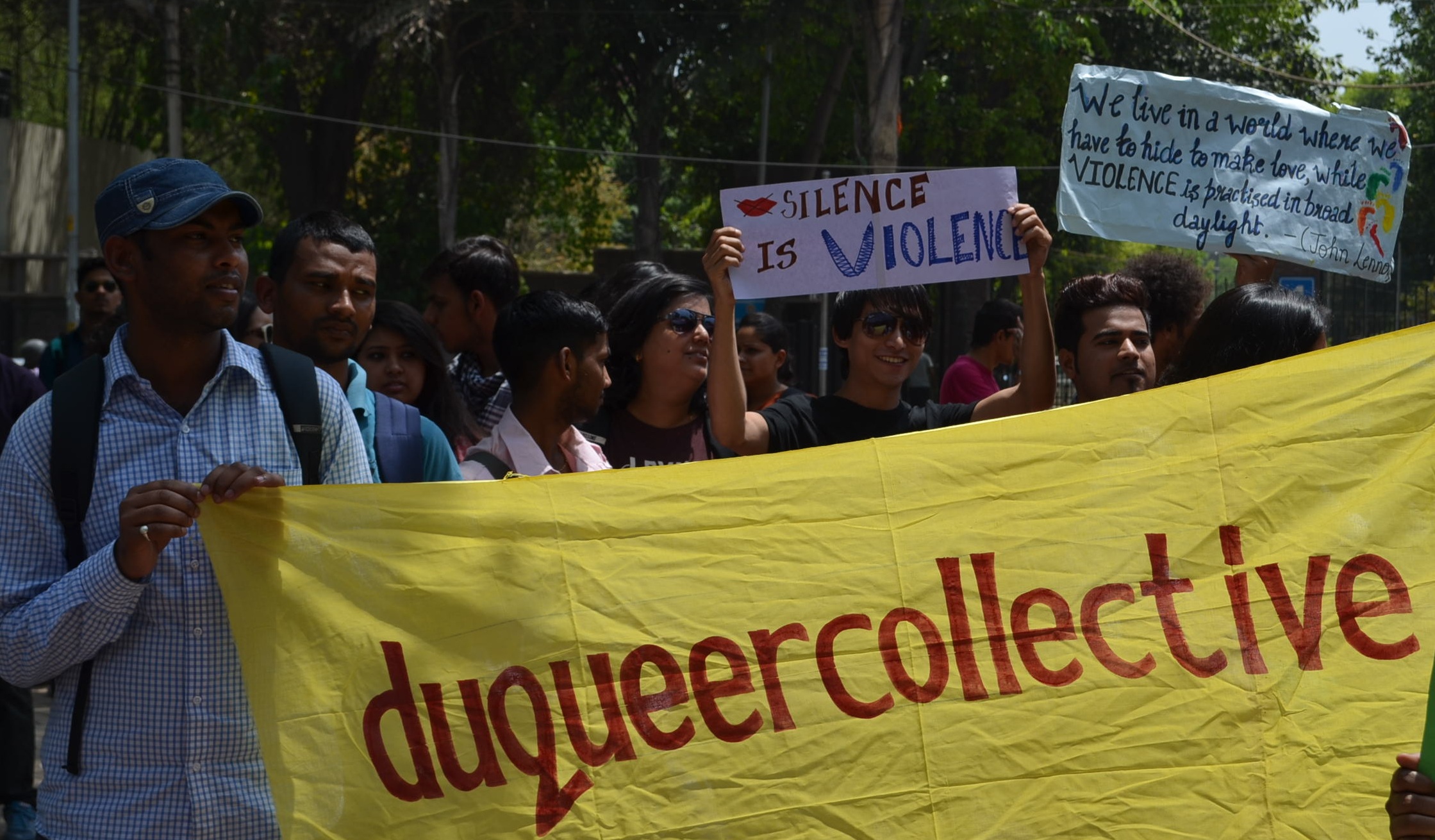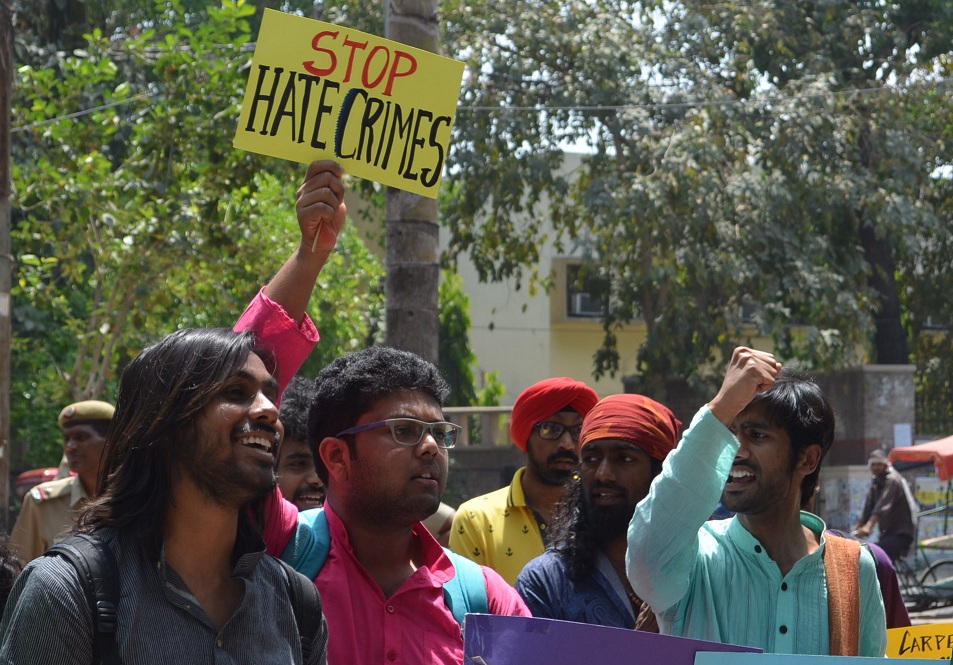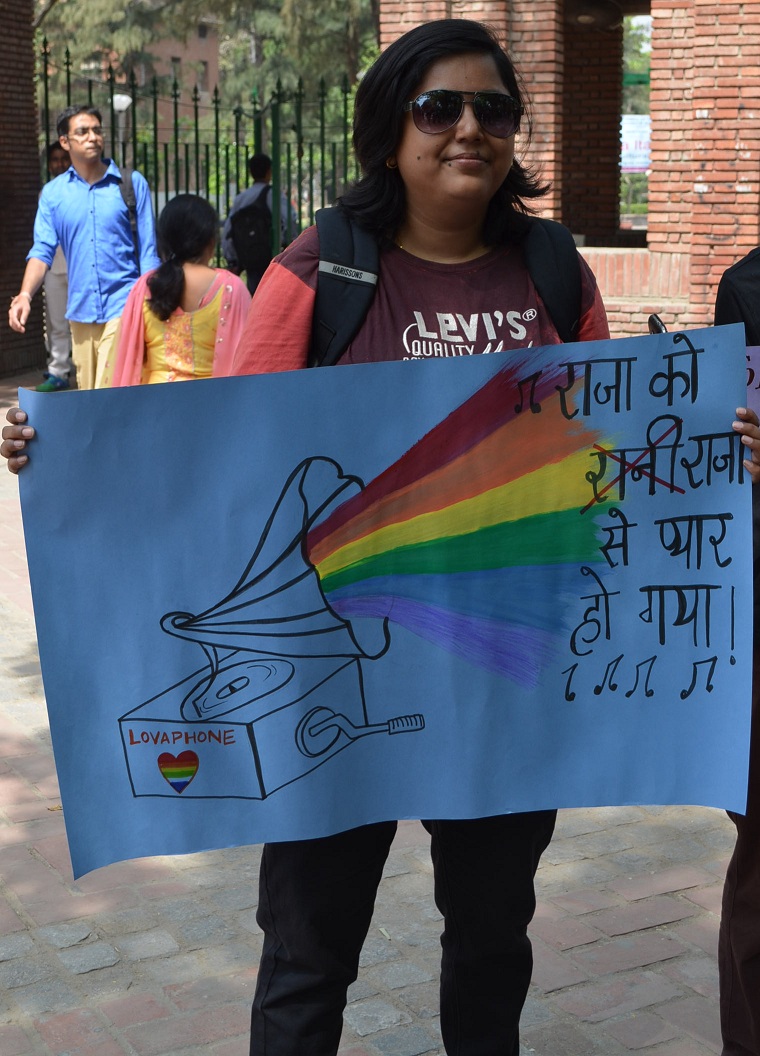They were participating in a protest march against the recent incidents of violence and abuse against the lesbian, gay, bisexual and transgender community on campus. In a twist, the students decided to carry posters displaying the various words and phrases hurled at the LGBT community.

“Incidents of mockery, abuse and bullying are so common across the university yet nobody cares enough to act and formulate even one body that can enforce action or enquiry,” said Rahul Yadav, a student of English an off-campus college affiliated to Delhi University. “I am here today because unless the voices of the suppressed are heard loud and clear, the oppressors will continue to reign.”
Over 50 students had gathered outside the gates of the Arts Faculty before 10.30 am when the Asmita Theater Society started staging their play based on the stereotypes and discrimination against LGBTs of the country. The play, directed by Arvind Gaur, also took jibes at various “cures to homosexuality” that are often promoted by godmen and healers claiming that it’s a disease.
“We want to send out the message that we all have the right to live whichever way we want,” said Gaur, addressing the audience and appealing to people to take up the issue in their peer group as well. “It’s only when all of us will come together to make noise, that the society will be forced to give up its prejudices.”
After the performance, protesters marched through the Arts Faculty gates till the Law Faculty campus, where they halted for shouting slogans before resuming their march from one college to another. The demonstration did face objections from some colleges, like Delhi School of Economics, which later relented, though Ramjas College did not allow students to enter, forcing them to conclude the march at Kirori Mal College.
Recently, the university has come into question for replacing the Ordinance XV(D) against sexual harassment, which provided protection to all persons, with the Sexual Harassment of Women at Workplace Act 2013, which applies only to women. This leaves men and the rest of the community exposed.
As the University sets out to formulate its admission policy for accepting transgender students in undergraduate courses as well, activists are worried that the policy won't be enough without proper infrastructure and sensitisation programmes for students as well as faculty.
“Those who are slightly effeminate are termed gay instantly and bullied even in the prestigious colleges,” said a student from Kirori Mal College, who did not wish to be identified. “The situation is however, much worse, for those of us who are still in the closet because when they suffer abuse all they care about is protecting their identity and not justice.”
“We aren't going to compromise with the stereotypes,” said Aapurv Jain, co-ordinator of the university’s informal gender studies group. “The university acted against discrimination of North Eastern students only after a student was beaten up and died. Maybe they are going to wait till someone’s death before they decide to act on this issue too.”
Photos: Mayank Jain




















